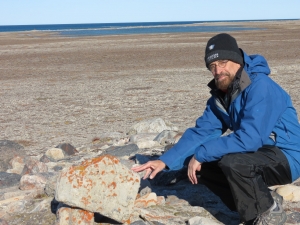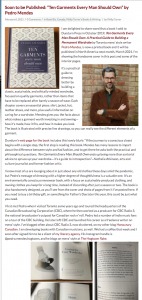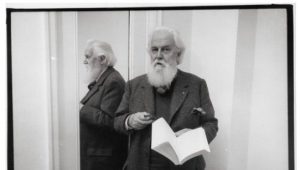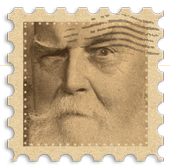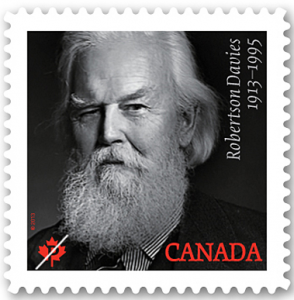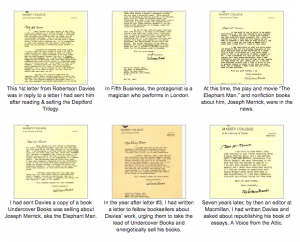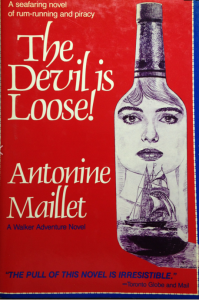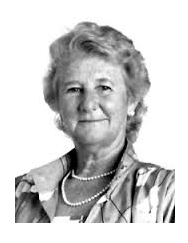March 21 at The Explorer’s Club—A Discussion w/Canadian author Ken McGoogan on “Searching for Franklin: New Answers to the Great Arctic Mystery”
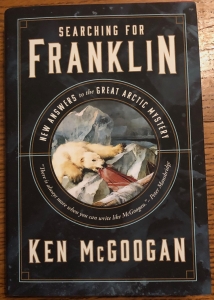 As a longtime editor and publisher of books about the Arctic and Canada, I’m excited to announce that I’ve been invited to moderate a discussion on Thursday, March 21 at The Explorer’s Club in Manhattan with Canadian writer Ken McGoogan, author of Searching for Franklin: New Answers to the Great Arctic Mystery (Douglas & McIntyre, April 9, 2024). The event is timely thanks to an exhibit “The Awe of the Arctic,” running at the NY Public Library (42nd St location) from March 15-July 13, where McGoogan will also be making a presentation on March 22.
As a longtime editor and publisher of books about the Arctic and Canada, I’m excited to announce that I’ve been invited to moderate a discussion on Thursday, March 21 at The Explorer’s Club in Manhattan with Canadian writer Ken McGoogan, author of Searching for Franklin: New Answers to the Great Arctic Mystery (Douglas & McIntyre, April 9, 2024). The event is timely thanks to an exhibit “The Awe of the Arctic,” running at the NY Public Library (42nd St location) from March 15-July 13, where McGoogan will also be making a presentation on March 22.
It will be a ticketed event, $15 for Explorer’s Club members (a venerated institution, established in 1904), $30 for non-members. The evening will kick off with a reception and drinks from 6:00 – 7:00 pm. Our discussion will also be livestreamed. More details at the author’s website linked to here and the venue’s site here. In preparation for the event I’ve had occasion to write a bio that traverses my background as a bookseller, editor, publisher, and agent, and my career-long association with Canadian books and authors, which I’m pleased to share here.
—-
Philip Turner/my Canadian-adjacent bio
I have worked in the book business and publishing industry for more than four decades, often championing Canadian books and authors, as co-owner of Undercover Books, a family-run bookstore chain in Cleveland, Ohio, established in 1978; in-house acquiring editor, executive editor, and editor-in-chief for eight NY publishing companies from 1986-2009; and an independent book developer and literary agent the past fifteen years.
During my career as a retail bookseller I made a special effort to stock and sell work by Canadian authors, including books by Robertson Davies, Mordecai Richler, Patrick Watson, Farley Mowat, Margaret Atwood, Margaret Laurence, and Pierre Berton; as an editor I published US editions of books by Richler, Mowat, Atwood, Berton, Romeo Dallaire, Paul Quarrington, Paul Anderson, Antonine Maillet, Jan Lars Jensen, Howard Engel, Gwynne Dyer, Elaine Dewar, Brian Fawcett, Carol Bruneau, Julian Sher, Joan Barfoot, George Elliott Clarke, and the aforementioned Ken McGoogan.
In the early 2000s I published two of McGoogan’s books, including Fatal Passage: The Untold Story of John Rae, the Arctic Adventurer Who Discovered the Fate of Franklin (Carroll & Graf Publishers, 2002), the ur-book for me and many readers in learning about the tangled fate of John Franklin and his doomed voyage, for which McGoogan won The Christopher Award, given to producers, directors, and writers of books, films and television specials that “affirm the highest values of the human spirit.”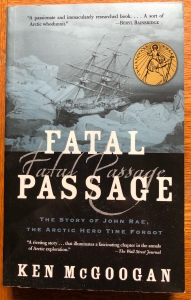
I’ve edited other tales of exploration, such as The Revenant: A Novel of Revenge (Carroll & Graf Publishers, 2002) by Michael Punke, and republished polar classics from past decades, including: Alone, Admiral Richard Byrd’s unforgettable 1939 memoir of six-month solo sojourn near the South Pole, Afterword by David G. Campbell, author of Crystal Desert: Summers in Antarctica; Snow Man: John Hornby in the Barren Lands by Malcolm Waldron, Introduction by Lawrence Millman, chronicling a 1923 trek by a “Hermit of the North”; and Great Heart: The History of a Labrador Adventure by James West Davidson and John Rugge, Introduction by Howard Frank Mosher, on the 1903 expedition of Leonidas Hubbard and Dillon Wallace, all published by me under the Kodansha Globe imprint in the 1990s.
As a literary agent, I represent such books as The Twenty-Ninth Day: How I Survived a Grizzly Attack on the Canadian Tundra (Blackstone Publishing, 2019, Minnesota Book Award finalist) by Alex Messenger; The Barrens: A Novel of Love and Death in the Canadian Arctic (Arcade Publishing, 2022, winner of the Minnesota Book Award) by Kurt Johnson and Ellie Johnson; and Toronto men’s style writer Pedro Mendes’ Ten Garments Every Man Should Own: A Practical Guide to Building a Permanent Wardrobe (Dundurn Press, Toronto, 2021). Philip Turner Book Productions also represents Maya Miller, co-founder, drummer, and lyricist of the Canadian garage rock band, The Pack a.d., whose memoir we’ll be presenting to publishers in 2024.
Philip Turner Book Productions is a joint editorial consultancy and literary agency which I operate with my adult son Ewan Turner.
As a freelance music critic, I attended the NXNE music festival in Toronto numerous times as accredited press, and am a member of an informal fan community of music-lovers who follow Canadian indie bands (hashtag: #CANRock), a group that meets up from time to time online and at festivals and concert venues. I write about books, publishing, music, culture, and media on my two websites The Great Gray Bridge and Honourary Canadian. Ewan is a creative writer who publishes under the pen name M.G. Turner.

